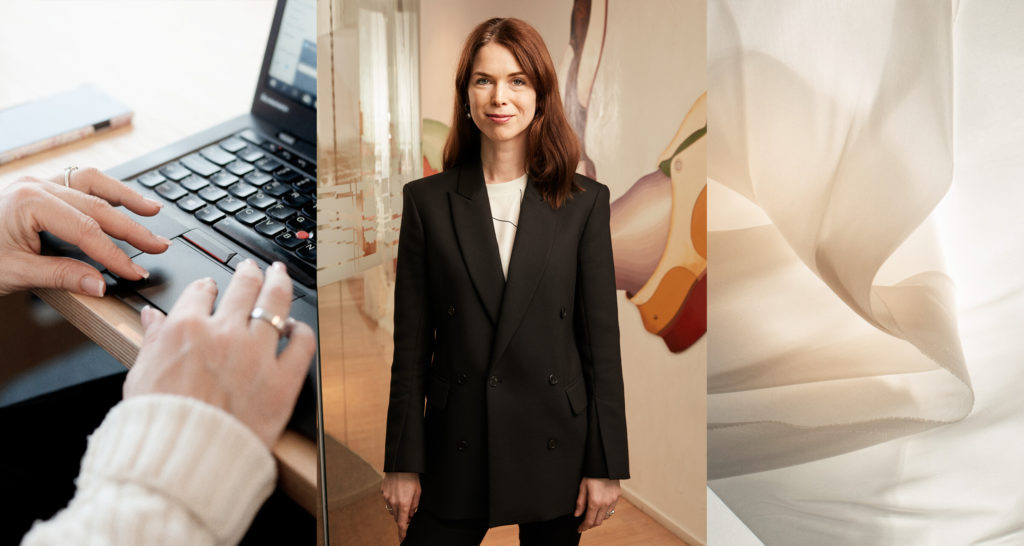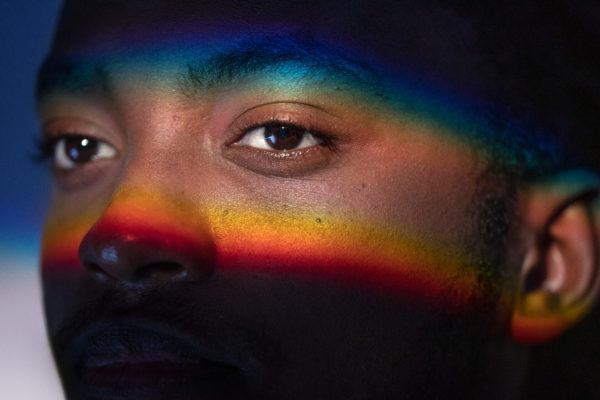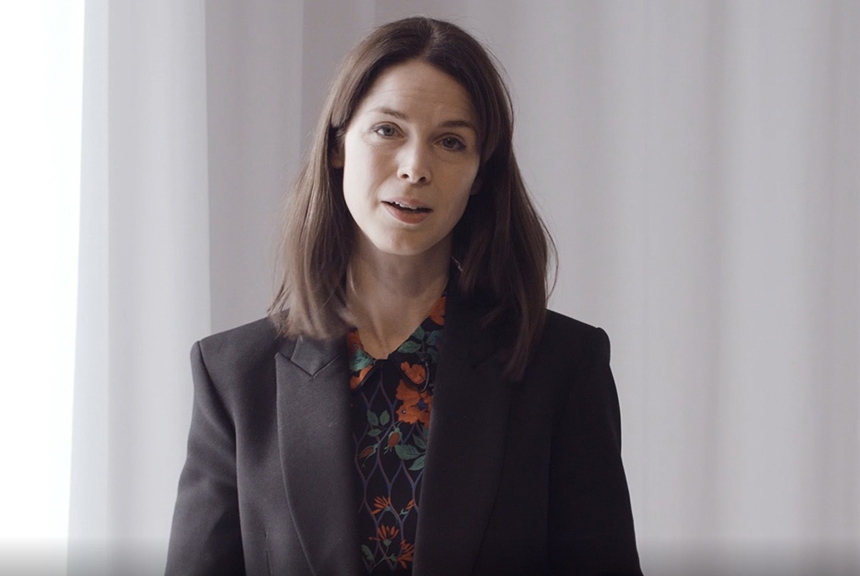Our Stories
Responsible AI, is better AI

If you’ve ever met a two-year-old, you’ll know that they’re incredibly curious; they love to try things out to see what happens. Sometimes their experiments and adventures go well, sometimes not. Now, say you give this toddler superpowers, like the ability to make life-changing decisions that affect millions of people globally, and then you go on holiday yourself. What would happen?
This is how Linda Leopold, Head of Responsible AI & Data at H&M Group, often thinks about artificial intelligence: as a toddler with superpowers. A compelling technology that can have an incredibly positive impact on business and society but is also immature; it needs parenting.

Linda Leopold, Head of Responsible AI & Data at H&M Group.
Leopold leads H&M Group’s work with responsible AI to ensure we use the technology sustainably and ethically. She’s a master of embracing change and innovation without forgetting the risks that can come with it. Having just spoken at the Women in Tech Online Festival about this very topic, Responsible AI, it felt fitting to reach out with a few questions.
The event has since passed, but the power of Leopold’s message has not (nor has the need to amplify talented women leading the tech industry): it’s a balancing act that, if done well, can offer near limitless potential. Here’s a glimpse into her approach to responsibly embracing an ever-changing future and where we, as a group, are in our AI (parenting) journey.

H&M Group is dedicated to using AI as a tool for good.
How would you describe today’s artificial intelligence?
Linda Leopold: “Artificial intelligence is a powerful technology that can be used for a wide range of purposes. It can have an amazingly positive impact on businesses and our societies and help solve some of humanities biggest challenges. At the same time, it is immature”.
“Even if the basic concepts of today’s AI arose in the 1950s, it is only during the last decade that it has started to have a tangible impact on our world; we haven’t yet learnt to foresee all consequences of the implementation of AI”.
“We also often have an over-reliance on what this technology can do for us. Sure, it’s intelligent, but it can also be foolish. There have been many examples during the last few years of AI causing harm unintentionally when not handled properly. For AI to be a force for good, it needs to be handled with love and care. That’s why we are talking about Responsible AI”.

H&M Group has set up a framework for Responsible AI based on nine main principles, for example, Transparent and Fair.
What framework has H&M Group set up to ensure we are using AI for good?
Linda Leopold: “There is a quote I love by the American historian Melvin Kranzberg. He wrote: ‘Technology is neither good nor bad; nor is it neutral.’ For me, it serves as a reminder to always consider the impact of technology in a larger human and societal context – something I think applies particularly well to AI, where the consequences of its use can be harder to foresee. Responsible AI is about having that fuller picture “.
“At H&M Group, we’ve set up a framework for Responsible AI based on nine main principles. We believe AI should be: Focused, Beneficial, Fair, Transparent, Governed, Collaborative, Reliable, Respecting Human Agency, and Secure”.
“… AI will be an essential tool for H&M Group to reach our vision of achieving a climate positive value chain by 2040″.
Linda Leopold, Head of Responsible AI & Data at H&M Group
It’s easy to be excited about new technology and the opportunity that comes with that. The challenging part is understanding the potential risks as well. How do you and your team balance the two?
Linda Leopold: “We assess all AI projects with our Checklist for Responsible AI. This helps the teams identify and discuss different types of potential risks and ways to mitigate them. It also ensures our development and use of AI aligns with our company values”.
“To raise awareness, we also created another tool to think about problems that don’t exist: the Ethical AI Debate Club. Here, people discuss fictional scenarios; ethical dilemmas related to AI. Things that could potentially happen in the fashion industry in the future”.
“The idea is not to solve the dilemmas but to help people practice different ways of thinking and reasoning and get familiar with the broad range of ethical challenges that can arise with AI. Ultimately, it is also about making ethical questions top of mind and creating what I call a culture of Responsible AI across the company”.

Linda Leopold’s personalised Weekday 3D Body Scan jeans.
Practically speaking, how are we using responsible AI as a force for change?
Linda Leopold: “We believe that AI will be an essential tool for the company to reach our vision of achieving a climate positive value chain by 2040. With the help of AI-driven demand prediction, we can optimise our supply chain to make sure that we produce the right products for our customers, to the right store, at the right time”.
Can you give us an example?
Linda Leopold: “Yes! This spring, Weekday [one of the H&M Group brands] and external partners launched a Body Scan Jeans pilot project. Customers can have their body 3D scanned in-store, which then generates a digital avatar, enabling customers to try different denim colours and styles virtually. Machine learning then converts the body scan into a paper pattern and measurement list. The jeans are then produced and can be picked up in-store, or delivered, a few weeks later”.
“This is an example of personalised, on-demand manufacturing. A solution that not only solves the problem of size and fit for the customer but also leads to fewer returns and decreased CO₂ emissions”.
A crash course to:
Responsible Artificial Intelligence
Created in 2018, our Responsible AI works on a twofold mission: (1) to use AI as a force for good to create sustainable growth and reach H&M Group’s sustainability goals and (2) to actively work to prevent causing any unintentional harm by our AI-driven business operations.
Women in Tech Online Festival
The Women in Tech (WIT) World Series Online Festival is a week-long festival where leading women in technology share their stories and deliver actionable insight through masterclasses, webinars, and workshops. The content aims to empower diverse voices, drive inclusivity, and empower the global community to create change.
Next event
If you missed the previous Women in Tech event, don’t fret. There’s another one in September! Mark your calendars, and be sure to check out Alexandra Sack, Head of Product Customer Domain at H&M Group. She will share insights on building a new culture virtually, establishing & empowering product teams, becoming customer-centric at the core, and shifting from waterfall to agile development.


